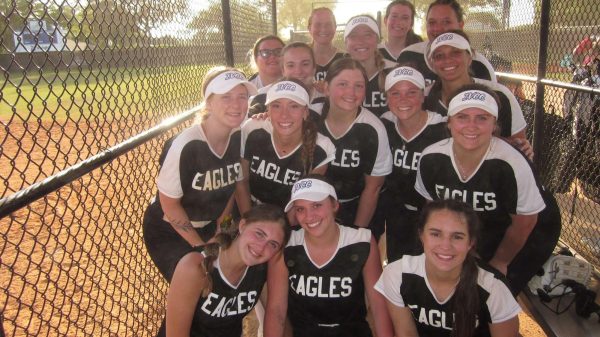Bits and Bytes: The Changing Role of the Manager in Baseball
April 4, 2019
For years, managers have been key characters in the game of baseball. The dirt-kicking, hat-throwing, base-tossing, arguing coaches have dominated the game for years. However, with advanced technology taking over the game, are managers an endangered species?
The instant replay rule has all but eliminated the dirt-kicking, hat-throwing, base-tossing, arguing managers from the game. But it is much more complicated than making less money and the instant replay rule. Advanced technology such as sabermetrics have taken over how baseball organizations are structured.
In the past, the general manager was a former player who hired all his old friends to help run the team. Now, that role is non-existent. Baseball front offices are now composed of nerdy brainiacs who are number savvy.
Most general managers or presidents of baseball operations have law, finance or some type of degree from elite universities across the country. Take two of Chicago’s baseball executives in charge: Theo Epstein holds a degree in American Studies from Yale and Rick Hahn holds a juris doctor from Harvard and an MBA from Northwestern.
The reason for this is because people like Epstein, along with Billy Beane and Brian Cashman, know how the new age analytics translate to create a winning team. Smaller market teams have begun to use these analytics to build a winning team since it is cheap and since they don’t have a larger amount of money than bigger market teams.
The amount of analytics that goes into figuring out the matchups is a ton of information. It is near impossible to plug in equations to figure out the best possible matchup per situation without the help of an advisor. Most managers and baseball organizations have analytical departments in which they help general managers find players that fit their team the best and also help managers plug lineups based off the best analytical matchup. In-game “gut” decisions are also becoming based off of analytics. For the most part, managers’ game plan before the first pitch is thrown based off of analytical data.
Also, analytical data has changed the game in the fact that pitching decisions have become based off of velocity, match-ups and pitch counts. Every match-up, whether on the mound or at the batter’s box, is based off of analytics. It has resulted in the complete game becoming non-existent.
We are seeing a shift when it comes to starting pitching. Last year, the Tampa Bay Rays employed an “opener” where a relief pitcher starts the game and throws about one to three innings, then gives way to another reliever who throws anywhere from the next three to five innings. It is a new tactic in baseball called “bullpenning” that has been used by smaller market teams such as the Rays, the Milwaukee Brewers, and the Oakland A’s in order to stay competitive with pitching since they can’t afford to pay top-tier starters.
Making split-second decisions to find the best possible match-up based off analytical data has changed the role of the manager. The entire game is being taken over by new technology that has revolutionized how a team is built. The talk of managers being replaced by a robot or computer who can plug analytical equations for the best possible matchup is merely nonsense. In my opinion, a computer of some sort will be placed in the dugout to help the manager process formulas to make split-second decisions and fill out lineup cards based on the best possible outcome.
In all, managers are a changing figure in baseball. The main thing that will change is the way managers make decisions during pre-game and in-game situations. Managers such as Terry Francona, Bruce Bochy and Ned Yost are a dying breed and will not be part of the game in the future. The managerial position will not be going anywhere during our lifetime. Players will want someone who understand them and will communicate with the team. That being said, robots as managers would not go over well with players in the clubhouse.
It is worth considering that since the role is changing, by no means will a baseball manager ever be replaced by a robot.






